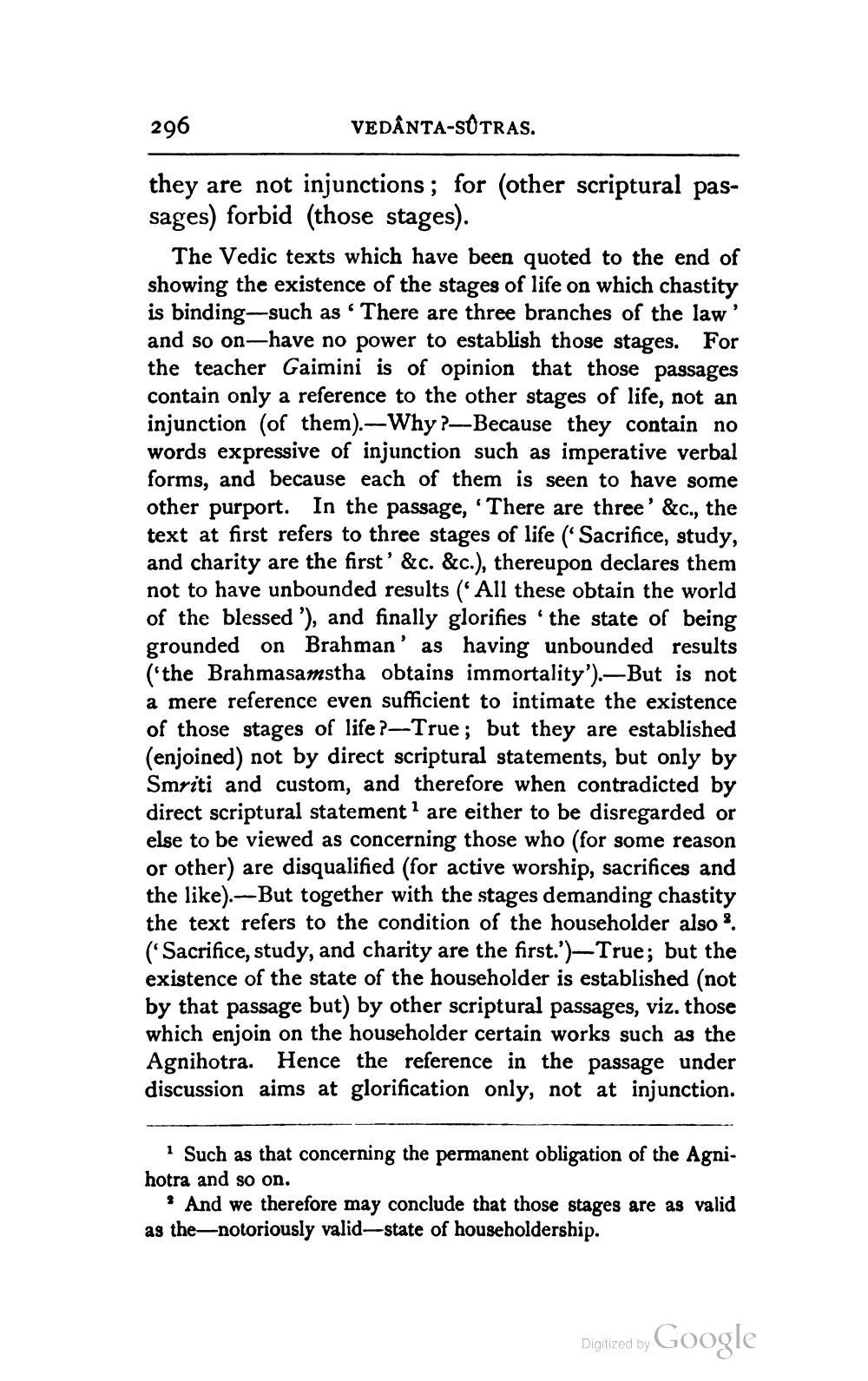________________
296
VEDÂNTA-SOTRAS.
they are not injunctions; for (other scriptural passages) forbid (those stages).
The Vedic texts which have been quoted to the end of showing the existence of the stages of life on which chastity is binding--such as . There are three branches of the law' and so on-have no power to establish those stages. For the teacher Gaimini is of opinion that those passages contain only a reference to the other stages of life, not an injunction (of them).—Why ?—Because they contain no words expressive of injunction such as imperative verbal forms, and because each of them is seen to have some other purport. In the passage, 'There are three' &c., the text at first refers to three stages of life (Sacrifice, study, and charity are the first' &c. &c.), thereupon declares them not to have unbounded results (All these obtain the world of the blessed '), and finally glorifies the state of being grounded on Brahman' as having unbounded results ('the Brahmasamstha obtains immortality').-But is not a mere reference even sufficient to intimate the existence of those stages of life?—True; but they are established (enjoined) not by direct scriptural statements, but only by Smriti and custom, and therefore when contradicted by direct scriptural statement are either to be disregarded or else to be viewed as concerning those who (for some reason or other) are disqualified (for active worship, sacrifices and the like).-But together with the stages demanding chastity the text refers to the condition of the householder also ?. (Sacrifice, study, and charity are the first.')—True; but the existence of the state of the householder is established (not by that passage but) by other scriptural passages, viz. those which enjoin on the householder certain works such as the Agnihotra. Hence the reference in the passage under discussion aims at glorification only, not at injunction.
? Such as that concerning the permanent obligation of the Agnihotra and so on.
? And we therefore may conclude that those stages are as valid as the notoriously valid-state of householdership.
Digitized by
Digitized by Google




